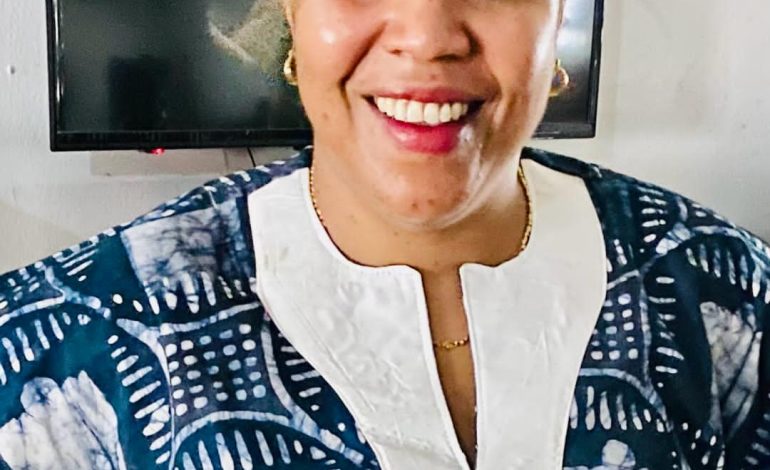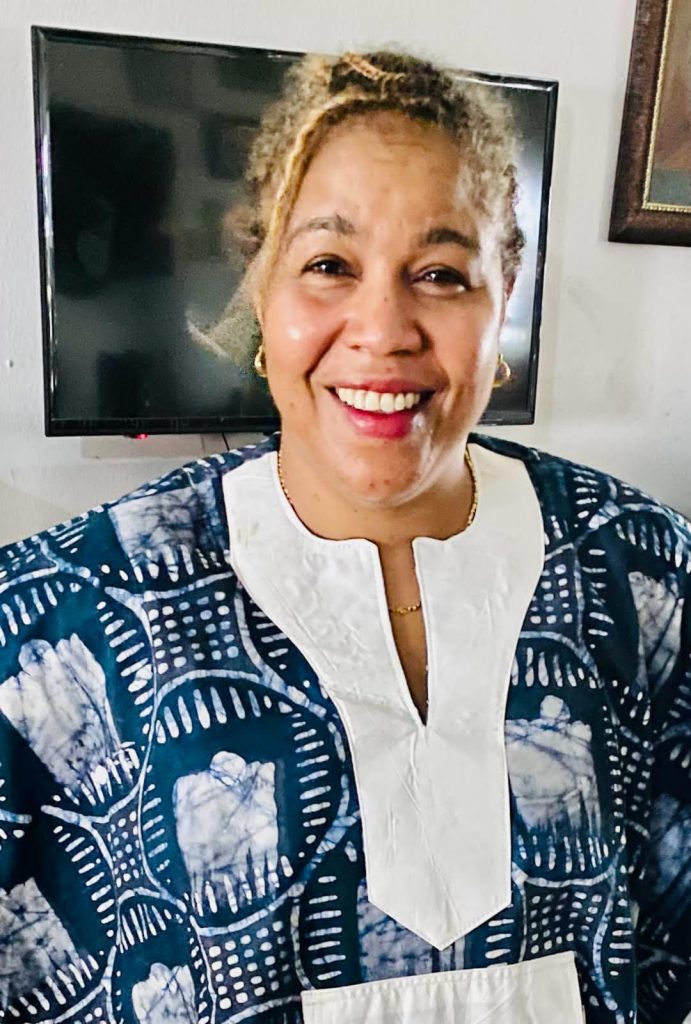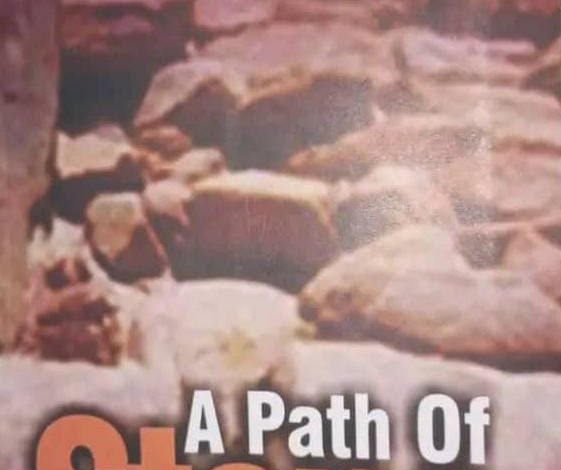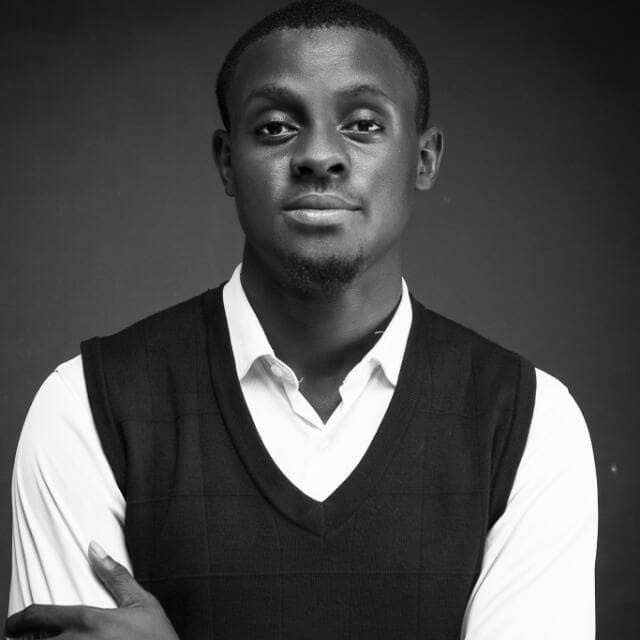‘Uncle Jimi’s story is a metaphor for the unsung heroes of the arts’

* Uncle Jimi was desperate that he told the story before…, and it’s like telling the story of a storyteller
Art will suck the life out of you if you give yourself entirely to it
By Anote Ajeluorou
Jimi Solanke or Uncle Jimi to many of his admirers, joined his ancestors on February 5, 2024 after spending 82 years of artistic life on mother-earth. But artists don’t die, as their works forever immortalise them. This is even moreso when a significant documentation of the life of such an illustrious artist is made in a massive 353 tome, as UK-based Nigerian, who teaches English OLUWATOYIN SUTTON, has done with the enigmatic title, Jimi Solanke: The Indestructible. Sutton explained to journalists the impetus for her defining book on the life and art of the ‘storyteller’, why she needed to tell the storyteller’s tale, the force that drove him on, etc. She was joined by artist and scholar, Dr. Oluseyi Ogunjobi (in what was akin to a fireside conversation remininscent of Solanke’s performance for and with children), who also lent his voice in explicating the complex but pleasant personality of the late performer in his indestructible, dedicated life for the arts
Why do you think Jimi Solanke’s story is important at this time, especially since he has just joined his ancestors?
THIS book is important for a lot of different reasons. One of the major reason is because Uncle Jimi’s story is a metaphor for what I would describe as the unsung heroes of the arts, who have given their entire lives to build the industry today. And when I say arts, I mean all-encompassing — music, theatre, poetry, visual arts. I’m talking about men and women who have built what we have today that actually has been more or less forgotten. Uncle Jimi’s story allowed us — I mean Uncle Jimi and myself — to actually celebrate the existence of that social history and the history around theatre, and the development of the early highlife scene in Ibadan, and also to mark the growth of theatre from its early forms at the University of Ibadan. So, it was important that his story be told, because we all learnt a thing or two, and I certainly did. When someone else has made mistakes, it’s easy for us to sit back and look at them and say, ‘oh, that was a terrible thing to do’, but once we understand the context, we begin to empathize. And I think a lot of the time, if you don’t know somebody’s story, you can make judgements about their life from afar, and I think having the story is so important because it gives his position on many things — a voice — so we can then judge on an even keel. I think it also maps, not just his story, but the story of his contemporaries who were with him as young apprentices in the 1960s. He wasn’t alone. There were other significant artists, dramatists, men and women of the theatre who were also apprentices with Prof. Wole Soyinka, who also grew through the theatre, and their stories mingled with his. In particular, his best friend whom he described as being like 5’n’6, the late Wale Ogunyemi, who was a particular influence in his Ibadan days.
So, we get snippets of other individual lives; we get snippets of Prof. Wole Soyinka as a young, amazing spirited creative. We get stories around Mbari Club, and it’s a complete context that we kind of explore. We are thrown into it and we see a different world. So, I think it was a lot to bring together but it had to be done, and Jimi Solanke particularly was an amazing subject, because he was very keen for the story to come out. So, he would answer questions via WhatsApp; his memory was so good and he would have answered 10 questions by morning and the answers were like pages, because they were so long, and we would sift out the information. I think he was desperate that he told the story before… and so it was nonstop. I had a full-time job as we all have, so it was difficult sometimes to find the time to squeeze this out and give it the focus, but by the grace of God, you have to keep going when your subject is so determined. You can’t give up because he seemed completely inspired that this story has to come out. We just can’t forget it. We can’t just keep it on the bookshelf. We need the world to read it and understand that this is not insignificant.
The Indestructible — why is the book coming from that perspective as title?
This is really a very interesting question. This was not the work title. This title happened upon us. I don’t know if people are aware that Uncle Jimi published a book of children’s stories and what he included were his visual paintings in the stories, and I was looking through the ‘foreword’, and I think Prof. Wole Soyinka wrote it, but he had signed somewhere in one of the copies — ‘To Jimi Solanke, The Indestructible’. So this is actually something that came directly from that wonderful literary icon who knows and knew Jimi more than anybody else, and I only wish I had the chance, when I interviewed Prof. Wole Soyinka, to delve into why he used that phrase, but I thought it’s enough for me that he did. So, I thought I would use it because I knew that it was loaded, and for me, I could kind of glean a little bit because Uncle Jimi was resilient. He had lots of downs, especially in the latter years, but he always kept getting up and kept going. There was something indestructible, dare I say, about him and if it’s a spirit, because it’s not the body, honestly, if I had half, one of the things I would take away from this is his spirit. If I had half his resilience, I would be more than thankful that that came out of this (encounter with him), because he just kept going, and when the world had more or less said he was too old, you see him again doing the film Jagun Jagun with Adebayo Salami. He had this indestructible spirit, I had to say, but that answers the question.
Oluseyi Ogujobi: I think the indestructible here actually is a metaphor for who Uncle Jimi Solanke really was. I would give you a good example. This was around May 1999, and I was visiting Nigeria at the Institute of Cultural Studies at Obafemi Awolowo University, Ile-Ife, and then Ola Rotimi was around. He had been on exile and he came back and they were doing a series of work with Uncle Jimi. So, most of the time, we ended up in the senior staff club together, and there was this night Uncle Jimi had drunk so many bottles of beer up till about 2:00am in the morning. And I thought he must be so tired and intoxicated, but to my surprise, I never knew he was actually going to perform. The next thing I would see was that his band was set, and he had transformed. He was truly this spirited being whom you could call indestructible…
So, there are so many reasons why he was indestructible, because he refused to give up. There was no funding coming from anywhere, and to actually exist as an artist in this country, it’s very difficult process if you don’t have funding or grant. Uncle Jimi got everything for himself. So, in a nutshell, it was the human being in him, and I think Prof. Wole Soyinka actually got that perfectly right.

Jimi Solanke’s biographer, Oluwatoyin Sutton
Who exactly was he to you, and at what point did the idea came to you to write this book?
Sutton: I would say the best way to describe who Uncle Jimi is to me is to say he was like a father-figure, because he was actually a part of my childhood growing up in Ile-Ife. So, the year I was born was when he came to Ife, and obviously, he was in Ife for the first 10 years, and then he came back in the 1980s, and then again towards the end of his life. My father had a club, The Beacon, and Uncle Jimi used to play Sunday jams when I was a teenager, and we used to go and listen. He was a friend of my parents, so he was in my childhood and my early adulthood before I left the country. So, I actually used to follow him, being this charismatic figure in the newspaper. And all of a sudden, things had died down in the 1990s. Then, towards the end of 2016, I got a phone call from another childhood friend who had spent the night before in one of our drinking places in Ife, and he had spent the night chatting with Uncle Jimi, and he said to me, “this old man has lots of stories to share. He was talking to me about his life and it was so wonderful. We should write the stories down.”
I had lost track of Uncle Jimi; I felt a thud in my heart. He was over 70 and he was still able to recount all those stories vividly. How much longer would he be able to recall them so vividly? ‘This was the time,’ I thought. I am not a writer in that professional sense but my instinct was that I could at least take notes and preserve them, and that was my approach, because I felt it would be a wonderful thing to capture what he had to say about his life, what he had seen and observed, any reflections and insights, if he could have done something differently and to reflect people he worked with. So, I approached him and he was so excited that I had taken an interest, and we took it from there, basically.
Were there any major challenges writing this book?
First of all, the major challenge was financial. I had to travel. I live and work full-time as an English teacher in a secondary school in the UK. For 2017-2018, the early parts of the book, before Covid-19 in 2020, I was coming in twice, either summer or Easter and Christmas when I had my holidays. That was because of the urgency. There were answers via WhatsApp, but I wanted to be around him, look at the objects around him. Sometimes, as a writer, if you’re writing about a painting, it may be linked to a particular painter but it’s also linked to a history around the owner. Spending time with him and really embedding (myself in) his spirit is what I would call it, because I had to embed (myself in) his spirit because it was stronger that mine. I put my hand up. The man was a strong spirit. I was trying to catch up with him and that’s the truth, because he had a lot of stamina, and sometimes when he sent the answers back, after like two or three weeks, he would ask me if there were no more questions. I think he really fuelled my continuation, because there are times when it just felt very heavy.
I’ve never published a book before. I’m a poet also by inclination, but you’re doing and going over drafts and sending it. I wanted to do him justice. It was about him, not me, because he’s a man of the theatre. He is a storyteller. It’s like telling the story of a storyteller. You have to tell it as a story that is interesting, because otherwise you’ve lost the story of the storyteller, and that’s how he told the story to me. Very colourful and dramatic. There were things I had to take out and redact but it was a journey and a half, and we thank God for today.
Did he see the book before he recently passed on?
Covid-19 killed us off in terms of everything, but it was good in a way because I just had to rewrite. There was a delay with the publishers, Bookcraft. I had gotten to them in 2019 with the manuscript, but there was a delay in shipping, because they don’t publish their books here. A few arrived in 2022, so Uncle Jimi had a copy and he shared with his friends. He enjoyed the book. We also did an online launch in 2022, where I did a presentation, but we were hoping to launch and he didn’t want me to put pressure on myself to take time off work and come, because I can only come during the holidays. So, he said we would do the launch when I’m on holidays, and I told him I would be home during the summer 2024, and we will do it properly. August 2023 was the last time we were together in Ife; I went to greet him at home and he was full of spirit, like nothing was wrong with him and you could never tell, but it wasn’t to be that we would have this time together to launch it. I don’t want to sit still and not get the story out.
From all your encounters, what exactly did you take away from him? When you heard that he passed away, how did you feel?
The first thing I felt was utter disbelief that he was not alive anymore, and then a real sense of sadness. Not that we hadn’t gotten his book and story out; we had that, but the sadness is that, literally, I would miss his presence, laughter, encouragement. Baba believed anything was possible, and anyone who was around him would know this. So if you say you wanted to do something, he would encourage you. He had that positive energy, and I felt sad that I would lose that, because I don’t know anyone else who had that kind of energy at that age that I can look up to. He was a father-figure to me. After the funeral, I felt a sense of purpose. He’s done his bit. I would need to be a part of anything that would get this story further than just in our superficial memory. I’m a shy person by nature, but I’m happy to do anything to promote this story now, because he’s not here. I feel as though we have a tendency to take for granted our most valuable assets, in terms of the creative arts, and when they’re gone, we are all up in arms, but when they were here, we don’t do anything.
I feel like he’s given us something we can work with, share, and use it as a platform to promote. Why don’t we say we need to put something together for artists of a certain age, of a certain level of experience? So that in their older age, they are not falling down and begging on social media. We need to do something that self-develops itself and we do some activities, and the money we get from that would be given to artists who have spent a lot of time in their lives and have given so much. We are giving something back. I feel this could inspire something greater than us.
Is it like an endowment fund, what you have in mind about putting some together for older artists?
That’s the word I was searching for. If they’ve worked up to a certain age, they are automatically membered into that endowment. It comes with certain benefits, like a gratuity or pension. Now the question is, how do you form that? We can create activities to generate funds, because it’s for a good cause, and I think there are enough people of great minds, even journalists right here are enough to begin that conversation, so that something tangible comes out of this, for artists who give their entire lives. Art will suck the life out of you if you give yourself entirely to it, and families have been impacted, because artists are committed.
What I took away from him is, ‘I can do whatever I set my mind to’, because he had inspiration to take on any challenge, and I have taken that from him. He had that capacity. Even if it affected him, you wouldn’t see it on the outside. He kept going, and I think I’ve taken that from him. Even if you’re stumbling, you’re still going, because you gather dust if you stop. You may not be perfect at the point you are, keep going and you might surprise yourself. From the actual process of writing the book, I think I’ve learned that actually when you have a passion for something, that is the biggest part of achieving something. It will push you, open doors, and get helpers. You need to have a passion for whatever you’re doing.
What were the non-verbal cues you took from him? I’m sure you must have asked him one or two regrets he had about life…
Uncle Jimi said that he had no regrets. His belief was that his life, every step he took, was directed by God, even through the parts that were rocky. Through that he was learning to become a man and have the kind of reflections that he now had as an older man. He died as a Knight of the Methodist Church. This is someone who had a lively reputation in his early years, for late night ruckus and drinking, and he got to a point where he changed his whole mindset about whom he wanted to be, and he more or less recreated (himself), because he wanted to be a family man, because he felt his family life had suffered because of his acts. So, I don’t think he had regrets per se. He had an understanding that life is up and down, and you can’t plan it. It happens and you learn from it, and you move on from that.
From your interactions with him, what were those things that helped him manage things around him?
First thing first, financial. Uncle Jimi was by himself from around the age of 18. He had to leave home because his dad did not agree with his chosen path. He was alone at Ibadan trying to make a life for himself. Literally, he found himself that he had a voice and he could sing. He was an actor and a singer, and he went wherever the jobs were, because he had to survive. He knew he had this talent and he gave it (his all) as an artist, and those talents were there to help him survive and be alive, because he had no one. He had the family of Wole Soyinka and the theatre, but his own immediate family were at loggerheads with him, so he had to survive. So, his instincts were led by that initially. He always said his first love was singing, because he used to sing with his mum, and he was very devoted to her, and there was some tension in that family relationship between his mum and dad. There were lots of fractures in that childhood which also can push a young person to find his own direction. Sometimes, circumstances contribute to your decision-making somehow, and I think that’s what he was trying to say. Certain decisions happen because of certain circumstances he was caught in the middle of, and if you made those decisions, that was the best you could do at that time.



